political
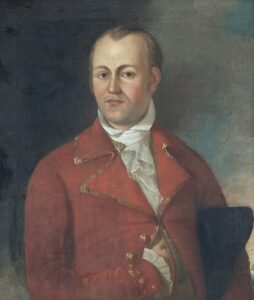
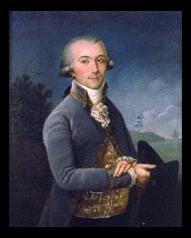 René-Auguste Chouteau Jr, who was best known as Auguste Chouteau, was the founder of Saint Louis, Missouri. While being a founder of a city is not necessarily such a strange thing, the way in which it came about is not so common. He was the only child of Marie-Thérèse (nee Bourgeois) and René Chouteau, born in either September 7th of either 1749 or 1750. René purportedly abused Marie-Thérèse, and abandoned her and René, so she returned to her pre-matrimonial home. She later remarried. In 1764, when Auguste was still a young man of just 13 years, his stepfather, Pierre Liguest sent him up the Missouri River from Fort Chartres, Illinois. Auguste was the leader of a company of 30 men. His mission was to select a site for a trading post. His stepfather must have considered the young man to be quite intelligent to put him in charge of such an enormous undertaking. Auguste didn’t let his stepfather down either. He chose a place that was not only perfect for the trading post, but would later become a great American city…Saint Louis, Missouri. After his stepfather’s death in 1778, Auguste succeeded him in the business and later formed a partnership with John Jacob Astor. Together they formed the American Fur Company. Auguste was 29 years old.
René-Auguste Chouteau Jr, who was best known as Auguste Chouteau, was the founder of Saint Louis, Missouri. While being a founder of a city is not necessarily such a strange thing, the way in which it came about is not so common. He was the only child of Marie-Thérèse (nee Bourgeois) and René Chouteau, born in either September 7th of either 1749 or 1750. René purportedly abused Marie-Thérèse, and abandoned her and René, so she returned to her pre-matrimonial home. She later remarried. In 1764, when Auguste was still a young man of just 13 years, his stepfather, Pierre Liguest sent him up the Missouri River from Fort Chartres, Illinois. Auguste was the leader of a company of 30 men. His mission was to select a site for a trading post. His stepfather must have considered the young man to be quite intelligent to put him in charge of such an enormous undertaking. Auguste didn’t let his stepfather down either. He chose a place that was not only perfect for the trading post, but would later become a great American city…Saint Louis, Missouri. After his stepfather’s death in 1778, Auguste succeeded him in the business and later formed a partnership with John Jacob Astor. Together they formed the American Fur Company. Auguste was 29 years old.
Chouteau married Marie Therese, the daughter of Jean-Gabriel Cerré, on September 21, 1786, at the Basilica of Saint Louis, King of France, which was a vertical-log church…long since replaced with the current church on the site. The apparently happy marriage united members of the two leading Saint Louis families. They were renowned for their hospitality, which helped strengthen his political position in the city and region. Together they had seven children…Auguste Aristide, Gabriel, Marie Thérèse Eulalie, Henry, Edward, Louise, and Emilie.
Auguste was commissioned colonel of the militia in 1808. His political career began in 1815 when he was appointed one of the commissioners to make treaties with the Indians who had fought on the British side in the War of 1812. The other two commissioners were Ninian Edwards and William Clark. I don’t suppose this would be a big step into politics, but it was an office, and the field of politics seems to take off from a smaller office. 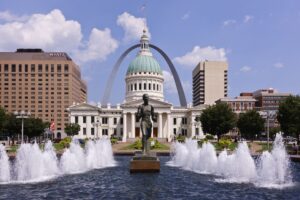
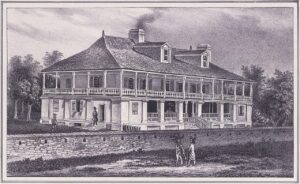 In Saint Louis, he served as Justice of the Peace and as Judge of the Court of Common Pleas. He was also the first president of the Bank of Missouri, as well as several other important positions. Auguste made it his policy when dealing with the Indians, to treat them fairly. Because of that, he enjoyed their confidence and friendship until his death, which occurred on February 24, 1829.
In Saint Louis, he served as Justice of the Peace and as Judge of the Court of Common Pleas. He was also the first president of the Bank of Missouri, as well as several other important positions. Auguste made it his policy when dealing with the Indians, to treat them fairly. Because of that, he enjoyed their confidence and friendship until his death, which occurred on February 24, 1829.
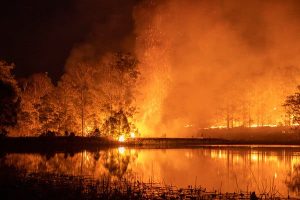 These days there aren’t many people who haven’t heard of the Santa Ana winds, the California wildfires, or this year, the burning of Australia. We hear all about how global warming is the cause of the tragic fires and loss of both vegetation and life, human and animal. I agree with the analogy that the fires in Australia are horrific, but the cause…well, that has been determined to be, not global warming, draught, or lightning, but rather arson…ARSON!! Disgusting just isn’t a big enough word for what that is.
These days there aren’t many people who haven’t heard of the Santa Ana winds, the California wildfires, or this year, the burning of Australia. We hear all about how global warming is the cause of the tragic fires and loss of both vegetation and life, human and animal. I agree with the analogy that the fires in Australia are horrific, but the cause…well, that has been determined to be, not global warming, draught, or lightning, but rather arson…ARSON!! Disgusting just isn’t a big enough word for what that is.
I can’t imagine why anyone would choose to burn something…anything. You can call it a sickness, and maybe it is, but that cannot be an excuse. If we allow such an excuse, more and more people will use it, take out their frustrations on things around them, and then expect to be excused because they are “sick.” At this point, firefighters are battling wildfires across Australia. Meanwhile, the police in New South Wales have arrested  dozens of people for offenses related to fires, including 24 for deliberately lighting fires and three for looting fire-ravaged communities. There is also a story saying that 183 to 200 people are suspected of “fire-related offenses since November 8th, including for ‘allegedly discarding a lighted cigarette or match on land,’ but no verification as to the exact charges being lodged.
dozens of people for offenses related to fires, including 24 for deliberately lighting fires and three for looting fire-ravaged communities. There is also a story saying that 183 to 200 people are suspected of “fire-related offenses since November 8th, including for ‘allegedly discarding a lighted cigarette or match on land,’ but no verification as to the exact charges being lodged.
It is sad that the most common motive for wildfire arson is crime concealment. Fires are set for the purpose of covering up a murder or burglary or to eliminate evidence left at a crime scene. Fires have also been known to be set to further social, political, or religious causes. The fire set to cover up a crime, while horrific, is at least explainable, but fires set for political, social, or religious reasons is completely disgusting. There is just no excuse for the loss of homes businesses, and lives, human and animal, that could excuse such destruction. One fire, set to cover up a crime is reasonable, though disgusting, but these are all over Australia. And while one  person might be a “sick” arsonist, to find 24 to 200 “sick” arsonists, is not even possible. The other thought that makes me so mad I could scream, is that even if this is socially, politically, or religiously motivated, what is the point? What are they trying to prove? All I can say is, that I hope they find the people who did this and that they give them the maximum sentence possible. I don’t know Australian law, so I don’t know if they have the death penalty or not, but I think these people should get it, if they do. And if not, solitary confinement for the rest of their lives might…just might, be punishment enough, but I really doubt it.
person might be a “sick” arsonist, to find 24 to 200 “sick” arsonists, is not even possible. The other thought that makes me so mad I could scream, is that even if this is socially, politically, or religiously motivated, what is the point? What are they trying to prove? All I can say is, that I hope they find the people who did this and that they give them the maximum sentence possible. I don’t know Australian law, so I don’t know if they have the death penalty or not, but I think these people should get it, if they do. And if not, solitary confinement for the rest of their lives might…just might, be punishment enough, but I really doubt it.
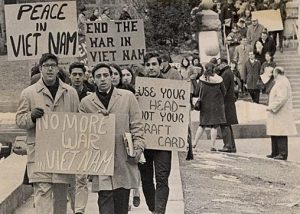 Registering for the draft is a requirement when a young man reaches 18 years of age. There is no draft in the United States anymore, but by registering the young men, the government could hold a draft, should a war bring such a need. During the Vietnam War, there were a lot of people who felt that the United States shouldn’t be in the war. Many young men didn’t want any part of it, and they decided to protest the war by burning their draft cards. Of course, this was forbidden by law, but they didn’t care. They were willing to take the chance, if it meant that they could avoid going to war.
Registering for the draft is a requirement when a young man reaches 18 years of age. There is no draft in the United States anymore, but by registering the young men, the government could hold a draft, should a war bring such a need. During the Vietnam War, there were a lot of people who felt that the United States shouldn’t be in the war. Many young men didn’t want any part of it, and they decided to protest the war by burning their draft cards. Of course, this was forbidden by law, but they didn’t care. They were willing to take the chance, if it meant that they could avoid going to war.
By May 1965 young men were protesting by burning their draft cards with greater frequency around the United States. To limit this kind of protest…in August 1965 the United States Congress enacted a law to broaden draft card violations to punish anyone who “knowingly destroys, knowingly mutilates” his draft card. Then, on October 15, 1965, in New York, David Miller, a young Catholic pacifist, became the first US war protestor to burn his draft card at a protest rally, in direct violation of a recently passed law forbidding such acts. Agents from the Federal Bureau of Investigation later arrested him. He was tried, found guilty, and sentenced to two years imprisonment, but that did not stop the protesting or the burning of draft cards. Subsequently, 46 men were indicted for burning their draft cards at various rallies, and four major court cases were heard. One of them, United States v. O’Brien, was argued before the Supreme Court. The act of draft card burning was defended as a symbolic form of free speech, a constitutional right guaranteed by the First Amendment. The Supreme Court decided against the draft card burners. It determined that the federal law was justified and that it was unrelated to the freedom of speech. This outcome was criticized by legal experts.
From 1965 to 1973, few men in the United States were convicted of burning their draft cards, and some 25,000 went unpunished. I suppose it was difficult to wrap our minds around the idea imprisonment for our young men over a protest. Still, it was illegal. And something had to be done. Before 1965, the act of burning a draft card was already prohibited by US statute and the registrant was required to carry the card at all times. Any destruction of the card was against the law. Also, it was entirely possible for a young man to destroy his draft card and still answer the call to service by appearing at an induction center and serving in the military. It also seems to me that if they had registered, that the government also had a copy of the registration, so if they were going to be drafted, having or not having the card was really a formality. And it was possible for a registrant to faithfully keep his card on his person but fail to appear when called. The draft 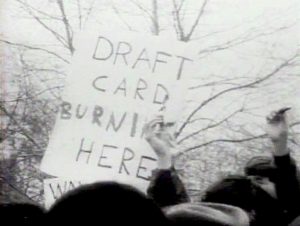 card burning was an act of protest against the war, more than it was a way to avoid the draft. Still, the image of draft card burning was powerful, and very influential in American politics and culture. Photos appeared in magazines, newspapers and on television. It was proof of a political divide between those who backed the United States government and its military goals and those who were against any United States involvement in Vietnam. With the political upheaval, Richard Nixon ran for president in 1968 on a platform based largely on putting an end to the draft, hoping to put an end to protesters burning their cards. As president, Nixon indeed did end the draft in 1973, rendering the symbolic act of draft card burning unnecessary, and registering just a requirement.
card burning was an act of protest against the war, more than it was a way to avoid the draft. Still, the image of draft card burning was powerful, and very influential in American politics and culture. Photos appeared in magazines, newspapers and on television. It was proof of a political divide between those who backed the United States government and its military goals and those who were against any United States involvement in Vietnam. With the political upheaval, Richard Nixon ran for president in 1968 on a platform based largely on putting an end to the draft, hoping to put an end to protesters burning their cards. As president, Nixon indeed did end the draft in 1973, rendering the symbolic act of draft card burning unnecessary, and registering just a requirement.
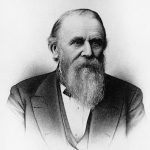
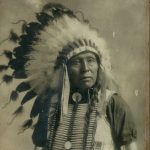 When Colorado Governor John Evans was looking to win a seat in the United States Senate, he made a bold, but unwise decision to attempt to remove all Native American activity in eastern Colorado Territory. On June 24, 1864, he warned that all peaceful Indians in the region must report to the Sand Creek reservation or risk being attacked. It was truly a halfhearted offer of sanctuary, with an ulterior motive. Evans then made one bad decision after another, when he issued a second proclamation that invited white settlers to indiscriminately “kill and destroy all…hostile Indians.” At the same time, Evans began creating a temporary 100-day militia force to wage war on the Indians. He placed the new regiment under the command of Colonel John Chivington, another ambitious man who hoped to gain high political office by fighting Indians.
When Colorado Governor John Evans was looking to win a seat in the United States Senate, he made a bold, but unwise decision to attempt to remove all Native American activity in eastern Colorado Territory. On June 24, 1864, he warned that all peaceful Indians in the region must report to the Sand Creek reservation or risk being attacked. It was truly a halfhearted offer of sanctuary, with an ulterior motive. Evans then made one bad decision after another, when he issued a second proclamation that invited white settlers to indiscriminately “kill and destroy all…hostile Indians.” At the same time, Evans began creating a temporary 100-day militia force to wage war on the Indians. He placed the new regiment under the command of Colonel John Chivington, another ambitious man who hoped to gain high political office by fighting Indians.
The Sioux, Cheyenne, and Arapahoe Indians of eastern Colorado had no idea of the political maneuverings of the White Man. Although some bands had violently resisted white settlers in years past, by the autumn of 1864 many Indians were becoming more receptive to Cheyenne Chief Black Kettle’s argument that they must make peace. Black Kettle had recently returned from a visit to Washington, DC, where President Abraham Lincoln had given him a huge American flag of which Black Kettle was very proud. He had seen the vast numbers of the white people and their powerful machines. The Indians, Black Kettle argued, must make peace or be crushed.
Word of Governor Evans’ June 24 offer of sanctuary was not well received by many of the Indians, most of whom still distrusted the White Man and were unwilling to give up the fight. Only Black Kettle and a few of the 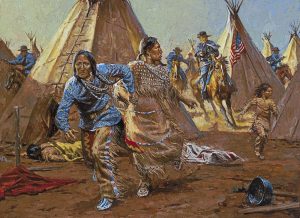 lesser chiefs took Evans up on his offer of amnesty. Evans and Chivington were reluctant to see hostilities further abate before they had won a glorious victory, so they weren’t overjoyed that Black Kettle and his people accepted the offer. Nevertheless, they grudgingly promised Black Kettle that his people would be safe, if they came to Fort Lyon in eastern Colorado. In November 1864, the Indians reported to the fort as requested. Major Edward Wynkoop, the commanding federal officer, told Black Kettle to settle his band about 40 miles away on Sand Creek, where he promised they would be safe.
lesser chiefs took Evans up on his offer of amnesty. Evans and Chivington were reluctant to see hostilities further abate before they had won a glorious victory, so they weren’t overjoyed that Black Kettle and his people accepted the offer. Nevertheless, they grudgingly promised Black Kettle that his people would be safe, if they came to Fort Lyon in eastern Colorado. In November 1864, the Indians reported to the fort as requested. Major Edward Wynkoop, the commanding federal officer, told Black Kettle to settle his band about 40 miles away on Sand Creek, where he promised they would be safe.
Unfortunately, Wynkoop could not control John Chivington, and John Chivington was not inclined to honor the promise of safety. By November, the 100-day enlistment of the soldiers in his Colorado militia was nearly up, and Chivington hadn’t killed any of the Indians. With his political stock falling rapidly, and he seemed almost insane in his desire to kill Indians. “I long to be wading in gore!” he is said to have proclaimed at a dinner party. In his demented state, Chivington apparently decided that it did not matter whether he killed peaceful or hostile Indians. In his mind, Black Kettle’s village on Sand Creek became a legitimate and easy target, and he assumed that no one would ever know the difference.
Chivington led 700 men, many of them drunk, in a daybreak raid on Black Kettle’s peaceful village on November 29, 1864. Most of the Cheyenne warriors were away hunting. In the horrific hours that followed, Chivington and his men brutally slaughtered 105 women and children and killed 28 men. The soldiers scalped and mutilated the corpses, carrying body parts back to display in Denver as trophies. Somehow, Black Kettle and a number of other Cheyenne managed to escape. Chivington’s treachery would not go unnoticed as he had supposed, and in the following months, the nation learned of the horror of Sand Creek. Many Americans were 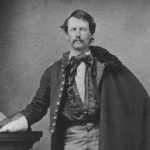
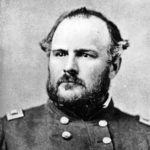 horrified and disgusted. Chivington and his soldiers had left the military and were beyond reach of a court martial. Still, Chivington’s horrific acts killed any chance of realizing his political ambitions, and he spent the rest of his inconsequential life wandering the West. Evans also paid a great price for the scandal. He was forced to resign as governor and his hopes of holding political office were dashed. Evans went on to a successful and lucrative career building and operating Colorado railroads, however. I suppose time can make people forget wrongs done, whether they should be forgotten or not.
horrified and disgusted. Chivington and his soldiers had left the military and were beyond reach of a court martial. Still, Chivington’s horrific acts killed any chance of realizing his political ambitions, and he spent the rest of his inconsequential life wandering the West. Evans also paid a great price for the scandal. He was forced to resign as governor and his hopes of holding political office were dashed. Evans went on to a successful and lucrative career building and operating Colorado railroads, however. I suppose time can make people forget wrongs done, whether they should be forgotten or not.
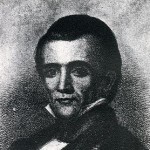 They say that children learn what they live, and we all know that is true in many ways. What I find interesting is that when there is a family that has political ties, often they extend way back. Of course, with new people being introduced into the family with marriages and births, things can change, and move away from the ties that had been there before, but often they continue on for generations. That is the case in the Knox family, which is one of the families my husband, Bob comes from. His mom and grandparents were very much not political, but in generations past, there were several presidents in his family, with the one most well known to us being James Knox Polk, who is Bob’s 2nd cousin 5 times removed. I know that is pretty distant, but then, he lived from 1795 to 1849, so it would have to be.
They say that children learn what they live, and we all know that is true in many ways. What I find interesting is that when there is a family that has political ties, often they extend way back. Of course, with new people being introduced into the family with marriages and births, things can change, and move away from the ties that had been there before, but often they continue on for generations. That is the case in the Knox family, which is one of the families my husband, Bob comes from. His mom and grandparents were very much not political, but in generations past, there were several presidents in his family, with the one most well known to us being James Knox Polk, who is Bob’s 2nd cousin 5 times removed. I know that is pretty distant, but then, he lived from 1795 to 1849, so it would have to be.
There are also, the presidents who are a little more distant, but still come from the Knox family. Presidents like Andrew Jackson, George HW Bush, and George W Bush. The  connections are a little harder to find, because they involve the in-laws and their marriages, but they are nevertheless a familial connection. I suppose that if we go far enough back, we will find a president or some royalty in pretty much every family. It stands to reason when you consider the various family connections. As marriages and births occur, and family connections are formed, it becomes more and more a real possibility. For some of us, like Bob’s family’s political ties, and my family’s tie to Princess Diana and the British Royal Family, the connections are well known to us from the time we are children. For others, those connections are not discovered until much later on, and some never know that a connection exists. To me that is sad, because I have thoroughly enjoyed finding out who I am related to…and I have been very surprised too. Both Bob and I are related to Princess Diana and her children, so the birth of Prince George was particularly exciting to me. Even though the royal family is not exactly a political tie in the normal sense of the word, they are still the ruling family in England, and so political in that way.
connections are a little harder to find, because they involve the in-laws and their marriages, but they are nevertheless a familial connection. I suppose that if we go far enough back, we will find a president or some royalty in pretty much every family. It stands to reason when you consider the various family connections. As marriages and births occur, and family connections are formed, it becomes more and more a real possibility. For some of us, like Bob’s family’s political ties, and my family’s tie to Princess Diana and the British Royal Family, the connections are well known to us from the time we are children. For others, those connections are not discovered until much later on, and some never know that a connection exists. To me that is sad, because I have thoroughly enjoyed finding out who I am related to…and I have been very surprised too. Both Bob and I are related to Princess Diana and her children, so the birth of Prince George was particularly exciting to me. Even though the royal family is not exactly a political tie in the normal sense of the word, they are still the ruling family in England, and so political in that way.
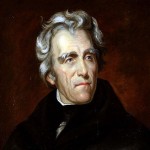
I suppose that things can come full circle too, from a very political family to one that is not so political, and back to very political again. And in that way, I would certainly be one of the latter…and possibly the most politically inclined member of the current family…at least for the Knox/Schulenberg side. I doubt if anyone would dispute that. I have no intentions of running for political office. I might be considered more of an activist, in that I have very specific ideas of right and wrong, and I certainly don’t mind voicing my opinions on matters, as my friends can fully attest. What can I say, except that it takes all kinds of people to make this world what it is.
 They say you can pick your friends, but you can’t pick your family. That is a true statement in many ways, but none is more evident than when your family member wants to debate you on everything…or at least everything political. When I began trying to hook up with as many of my family members and extended family members as I could, I thought maybe I had stumbled into just such a situation. We had a rocky start, because we do have differing opinions on some things, but after I figured out that Matt does like to debate, but isn’t afraid to learn something new. I decided that maybe I was going to be glad that he was my cousin…or cousin once removed, since he is my cousin, Tina and her husband Glen’s son.
They say you can pick your friends, but you can’t pick your family. That is a true statement in many ways, but none is more evident than when your family member wants to debate you on everything…or at least everything political. When I began trying to hook up with as many of my family members and extended family members as I could, I thought maybe I had stumbled into just such a situation. We had a rocky start, because we do have differing opinions on some things, but after I figured out that Matt does like to debate, but isn’t afraid to learn something new. I decided that maybe I was going to be glad that he was my cousin…or cousin once removed, since he is my cousin, Tina and her husband Glen’s son.
Matt isn’t one of those people who picks a political party, but rather looks at each situation, and decides how he feels about it. That makes for a well informed person, and someone who might tend to disagree on many points with his friends and family who are more set on a specific party line. Matt and I have…crossed paths, and split hairs on several occasions, but in the end, it occurred to me that while he didn’t change my opinion on my beliefs, he made me think about the other side of some of the issues. Some things just aren’t cut and dried, and even when you just can’t change your view because of a debate, I don’t feel like the debate was a wasted effort on the part of either debater.
One of the things I have learned from Matt…yes, I have learned from him, even though he is years younger than I am…is that if you are going to talk about an issue, you had better have your facts straight. Don’t just form your opinion on the things people tell you about something…but, rather read, study, and ask questions about it before you decide how you feel about it…and consequently, to discuss it. I don’t think Matt set out to teach me or anyone else anything, he just wasn’t a person who could accept someone’s view on face value. He had to know more about it before he could accept it.
The thing I discovered about Matt is that he isn’t afraid to say that he really doesn’t know enough about a situation to effectively discuss it. I like that. So many people just spout off about issues they know nothing about, and really, all they want to do is irritate and try to pick a fight. Other people get mad if you don’t agree with their views. We are never all going to agree on every issue.
Today is Matt’s birthday. Matt and I are definitely in two different places politically, and I’m sure there will be quite a few debates in the future, but Matt…I have finally found something you cannot debate…today is your birthday…no doubt about it. Hahahaha!! So, happy birthday Matt!! Have a great day!! Debater or not, we love you.

